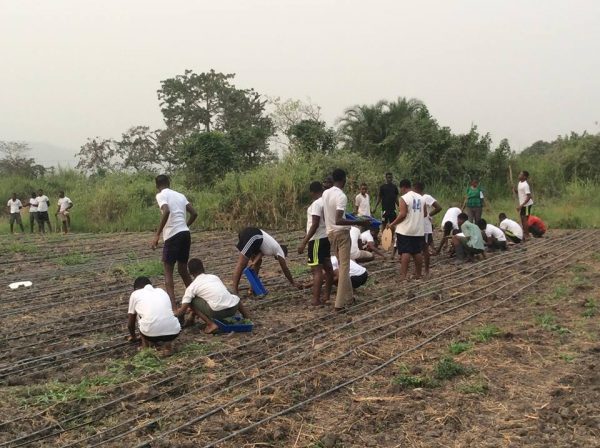Whilst a lot of investment and resources are channeled towards developing the agricultural sector, there is need to assess adoption levels especially on youths, mainly looking the differences brought about in their socio-economic status as well as impact on livelihood of households at large. Agricultural economists are beginning to recommend that African agriculture can start making transformations when youths can start participating actively in agriculture and create employment for themselves and others at the same time working towards achieving food security.
On day to day basis youths are stuck in job searching activities of which many at times they end up getting disappointed as they wait for a long time without getting acknowledgement for their applications. Youths in modern day prefer working not realizing they will be assisting someone to accomplish their dreams. In actual fact one would prefer looking for a job that gives them a thousand dollars instead of venturing into an enterprise that can give them the same amount or more over a given period of time. Supremely, a young person who is agribusiness minded should be able to cater for their basic needs, bills and other costs related to their day to day living through selling what they produce at the farm.
Practicing resilience
The majority of young people who do not make it academically view that failure as the end of the road. This is further ignited by global economic recessions that result in lack of employment opportunities. In actual fact, there are lot of things that are not taught in the classroom setup that one can utilize to make a living for themselves. One can survive after school by doing any enterprise of their choice (horticulture, bee-keeping, fish farming among others). Agriculture being the background of many African communities it is fundamental for young people to tap into the existing supply and demand gaps for agricultural commodities by households as a result of increase in population. Using Kenya as an example, the population for the nation is around 43 million that calls for serious production in every agricultural value chain so as to meet the daily demands from consumers with different tastes and preferences.
Gathering knowledge which pertains to different agricultural value chains
A common understanding and reading between the lines on the diverse trends in various agricultural value chains is very important. Venturing into agribusiness falls under perfect competition, hence market intelligence will give one a mileage as this is a powerful weapon to fight post-harvest losses as market-led production is a culture that should be adopted by individuals. There is need for the youths to merge and make use of knowledge that is readily available for different value chains. This can be done by tracking the different market patterns like changes in prices for commodities, how often a certain commodity reaches the market and also how often a commodity is demanded by the market. Having knowledge on finger-tips is very important for the youths as they journey towards becoming entrepreneurs with a strong foundation on different agricultural value chains. Contending well implies gathering large amounts of knowledge and emerging abilities for storing, processing and interpreting the data into tangible agribusiness insights.
Viewing of markets from a different perspective
A market being an effective arrangement of bringing buyers and sellers into contact with each other, there is need for the youth to view opportunities that are associated with the coming together of buyers and sellers of different agricultural commodities. From this, one should be able to identify a scarce commodity as well as a flooding commodity in the market and use that as an entry point. Young people should be found in the forefront when it comes to buying and selling of agro-produce, the should be main players along the value chains starting from the production process up to the time when a commodity reaches the final consumer.
Improved access to information can support logically driven situations forecasting and informing how agricultural value chains should progress. Nevertheless, access to information empowers informal markets to turn out to be bigger at understanding different market trends better than formal markets. It is fundamental for the youths to be partakers of knowledge and information found in markets so that they become the mouth piece for different value chains.
innopangy@gmail.com
Twitter @innoe_mhangarai Skype Innocent_Mhangarai LinkedIn Innocent Mhangarai
Blog: innoemhangarai.wordpress.com








